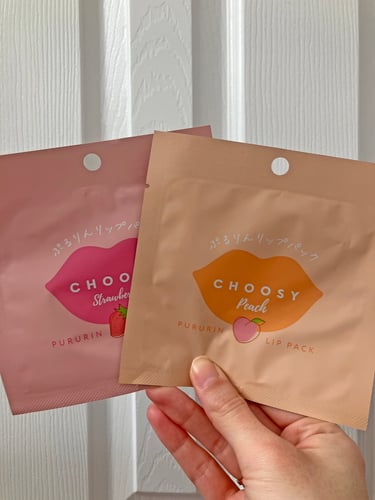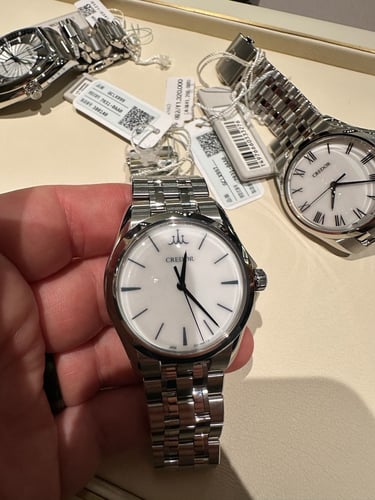Guide to Japanese Convenience Stores (Konbini)
In the bustling streets of Japan, where time is of the essence and convenience is king, one ubiquitous feature stands out – the konbini, or Japanese convenience store. These unassuming yet essential establishments are not just places to grab a quick snack; they are integral to Japanese culture and daily life. Let's take a journey through the world of Japanese konbini and discover all that they offer.
Konbini Culture: A Brief Introduction
In Japan, convenience stores are more than just places to pick up necessities; they are ingrained in society. Most, but not all, konbini are open 24/7. They serve as a reliable hub for everything from grabbing a quick meal to paying bills or even picking up concert tickets and packages. Konbini are known for their efficiency, cleanliness, and impeccable service, reflecting Japan's dedication to quality in all aspects of life.
Japanese convenience stores are ubiquitous throughout the country, with an impressive network of around 50,000 locations scattered across Japan. These convenience stores play a vital role in everyday life, offering a wide range of products and services to meet diverse customer needs. Among the many convenience store chains in Japan, three major players dominate the market: 7-Eleven, FamilyMart, and Lawson.
- 7-Eleven is one of the largest and most well-known convenience store chains globally, with a strong presence in Japan. It offers a comprehensive selection of food, beverages, snacks, household items, and services such as ATMs, bill payment, and parcel delivery.
- FamilyMart, another prominent chain, boasts a vast network of stores across Japan. It is known for its fresh food offerings, including bento boxes, sushi, and snacks, as well as a variety of convenience items and services like ATMs and photocopying.
- Lawson is also a major player in the Japanese convenience store industry, offering a diverse range of products from ready-to-eat meals to toiletries, stationery, and more. Lawson is recognized for its focus on quality and innovation, regularly introducing new products and services to meet evolving customer preferences.
These three main convenience store chains compete fiercely in the market, continually striving to improve their offerings, expand their reach, and enhance customer experiences. Their extensive presence and convenience make them integral parts of daily life for many residents and visitors in Japan.
Japanese Convenience Stores: Delicious Delicacies
One of the main attractions of Japanese konbini is undoubtedly the food. While American convenience store food may not always be the most appealing, Japanese convenience stores offer a top-notch culinary experience that is sure to impress (at extremely reasonable prices too). From traditional Japanese dishes to international favorites, there is something to satisfy every craving and palate. Here are some popular and delicious options to try:
Onigiri:
These triangular-shaped rice balls wrapped in seaweed and filled with various savory fillings are a staple of Japanese convenience store cuisine. Classics like salmon, tuna mayo, and pickled plum are always a hit.

Onigiri are great for a quick meal and are extremely popular amongst the Japanese at lunch time. We tried a number of the different onigiri available at different Japanese convenience stores during our trip to Japan and our favorite was the shrimp and mayo onigiri from FamilyMart! In fact, we loved the onigiri so much that we bought an onigiri mold to make them back home!

Bento Boxes & Sushi Rolls:
For a more substantial meal, Japanese convenience stores sell bento boxes and sushi rolls in a variety of flavors. From classic Japanese sushi rolls like tuna mayo, to more modern creations like crab meat corn rolls, Japanese convenience stores offer a wide array of options for those seeking a more substantial meal. Additionally, you can find sushi rolls made with fresh ingredients like salmon, eel, cucumber, and avocado, showcasing traditional flavors alongside innovative twists to cater to diverse palates. Bento boxes are a popular choice, too, featuring compartments filled with rice, protein such as teriyaki chicken or grilled fish, vegetables, and pickles, providing a balanced and satisfying meal on the go. These convenient and delicious meal options make Japanese convenience stores a go-to destination for quick and satisfying lunches or snacks.

In our experience, the bento boxes offered at Japanese konbini were far tastier (and cheaper) those found in train stations, making them excellent meal options for Shinkansen travel if you don't mind carrying them along with you.
Melon Pan & Pastries:
All Japanese convenience stores sell melon pan, a favorite of mine, particularly when paired with tea. Melon pan is a beloved treat in Japanese convenience stores and bakeries, known for its unique texture. This sweet bread is characterized by its distinctive hard crust, which is often scored to resemble the outer rind of a melon, lending it its name. The interior of melon pan is typically soft, fluffy, and slightly sweet, creating a wonderful contrast with the crispy crust. (Melon pan is somewhat akin to Mexican conchas, if you are familiar with that variety of sweet bread.)

What makes melon pan even more enticing is the variety it offers. While traditional melon pan is plain, you can find numerous variations with different flavors and fillings. Some popular varieties include butter, chocolate-filled melon pan, custard or cream-filled melon pan, and even seasonal variations like strawberry-filled melon pan in January. This diversity in flavors and fillings adds excitement and novelty to this classic Japanese treat, making it a favorite among locals and visitors alike.

Sandwiches:
Sandwiches at Japanese convenience stores are more than just quick bites; they have garnered a cult-like following. There is an incredible variety of sandwiches available at Japanese convenience stores, catering to diverse tastes and dietary preferences. You'll find classics like egg salad sandwiches (so good!), tuna mayo sandwiches, and ham and cheese sandwiches, as well as more unique options like katsu (breaded and fried) sandwiches, yakisoba (stir-fried noodles) sandwiches, pancake sandwiches, and even fruit sandwiches with whipped cream and fruit fillings.
Some sandwiches feature innovative flavor combinations that are unique to Japanese convenience stores. For example, you might find sandwiches with teriyaki chicken, tonkatsu (breaded pork cutlet) with tangy sauce, or even spicy curry fillings.
These sandwiches are ready to eat and packaged for on-the-go consumption. They are convenient for busy individuals looking for a quick and tasty meal or snack without compromising on flavor or quality. I had a egg salad sandwich from Familymart on the Shinkansen enroute to Niigata for a day of skiing. While it was by no means the prettiest sandwich, it was really delicious! It tasted just like when I make egg salad at home.

Other Sweet Treats:
Japanese convenience stores have a huge selection of sweet treats. From ice cream to chocolates, crème brûlée and more, Japanese convenience stores are ready to satisfy your sweet tooth cravings.
-
Ice Cream: Konbinis offer a wide array of ice cream flavors, from classic vanilla and chocolate to unique Japanese flavors like matcha, black sesame, and red bean. You can find single-serving cups, cones, and even ice cream sandwiches for a quick, satisfying treat. The ice cream cones are packaged particularly well, making them easy to take with you, as shown below.

-
Chocolates: Whether you're craving imported chocolates or local favorites, Japanese convenience stores have you covered. They stock a variety of chocolate bars, truffles, and chocolate-covered snacks in different flavors and textures.
-
Crème Brûlée: Some konbinis offer individual servings of crème brûlée, a decadent French dessert featuring a creamy custard base topped with caramelized sugar. It's a delightful treat for those seeking a rich and satisfying dessert experience.
-
Pastries and Baked Goods: From flaky croissants to soft, pillowy buns filled with custard or sweet bean paste, Japanese convenience stores offer a range of freshly baked pastries and bread. These make for a delightful snack or breakfast option.

-
Japanese Snacks: Explore the aisles for a plethora of uniquely Japanese snacks like mochi (chewy rice cakes filled with sweet fillings), Pocky (chocolate-covered biscuit sticks), Dorayaki (sweet pancakes filled with red bean paste), and more. These snacks showcase the creativity and variety in Japanese confectionery.
-
Seasonal Specials: Konbinis often feature seasonal and limited-time sweet treats, such as sakura-flavored sweets in spring or pumpkin-flavored treats in autumn. These offerings add an element of excitement and novelty to the dessert selection.
Drinks:
From hot coffee to refreshing teas and innovative soft drinks, konbini have a wide selection of beverages to quench your thirst.
-
Fresh Fruit Smoothies: Some 7-Eleven konbini in Japan offer fresh fruit smoothies, often made with a variety of different fruits. These are a refreshing and healthy option for those looking for something light and nutritious. We personally loved these for quick breakfasts and helped us get some fruit in our diets which can otherwise be challenging while traveling.
-
Hot Drinks from Cases: In addition to the usual cold drinks in refrigerated cases, many konbinis have hot drink cases. These cases contain a selection of bottled hot beverages like coffee, tea, and hot cocoa, perfect for warming up on chilly days.

-
Iced Coffee: Iced coffee is a must-have in Japanese convenience stores, offered in a range of flavors and strengths. You can find it in two convenient formats: ready-to-drink bottles or cans, or as cups of ice that you pour hot coffee into for a fresher taste. This versatility makes it a favorite among busy individuals on the move.
-
Other Beverages: Apart from these, you will find a plethora of other drinks such as:
- Bottled green teas, including traditional sencha and matcha varieties.
- Various flavored sodas and soft drinks, both local and international brands. Melon Fanta, unique to Japan, is a personal favorite of mine!
- Fruit juices and vegetable juices, often highlighting unique flavors like yuzu or aloe vera.
- Energy drinks and sports drinks for those needing a boost of energy or electrolytes.
- Alcoholic beverages like beer, sake, and chu-hai (a popular alcoholic drink made with shochu and flavored with fruit juices).
Japanese Convenience Stores: Beyond Food
While food is a major draw, Japanese konbini offer much more than just quick meals and tasty snacks. Here are some other items you can find:
Everyday Essentials:
Konbinis in Japan offer a diverse range of everyday essentials beyond just food and beverages, making them convenient stops for various needs. You can find toiletries such as toothbrushes, toothpaste, soap, shampoo, and skincare products from both popular Japanese and international brands. Additionally, konbinis stock a selection of stationery items like pens, notebooks, sticky notes, and office supplies, catering to students and office workers.
Surprisingly, some konbinis even offer basic clothing items like socks, underwear, and t-shirts, providing a quick solution for emergencies or travelers in need of fresh apparel. In fact, Familymart's socks, featuring the iconic blue and green stripes, are extremely popular. So much so, that they resell online for upwards of $10.00 USD, while the cost of the socks in Familymart stores in Japan is ¥429 or $2.83 USD!
Moreover, you can find personal care items like lip balm, tissues, hair accessories, and more, ensuring that customers can address their immediate needs conveniently while on the go. These comprehensive offerings make konbinis indispensable for locals and tourists alike, providing a one-stop-shop for a wide range of everyday essentials.
ATMs:
Many convenience stores in Japan have their own ATMs where you can withdraw cash. What is important to note is that many of these ATMs, particularly the Seven Bank ATMs found inside 7-Eleven convenience stores in Japan, accept foreign-issued debit and credit cards, making them a convenient stop for travelers. The transaction fees are minimal and they offer Japanese yen in denominations of ¥1,000 and ¥10,000 bills.

In addition, you can also find stand-alone ATMs from Japanese convenience store banks at airports, subway and train stations, as well as on street corners in some of Japan's major cities. The photo of the 7-Eleven Seven Bank ATM, above, was taken at Tokyo-Narita International Airport.
Other Services:
In addition to their core functions as convenience stores, some konbinis in Japan offer a range of supplementary services like copying, printing, package shipping, bill payment, and ticket sales. This versatility makes konbinis even more valuable as one-stop destinations for a wide range of daily needs and transactions.
Additional Tips to Keep in Mind When Shopping at Japanese Convenience Stores:
- Plastic Bags: Japanese convenience stores often charge a small fee for plastic bags as part of their eco-friendly initiatives, encouraging customers to bring their own reusable bags to reduce plastic waste. It is a common practice in Japan and aligns with the country's focus on environmental sustainability. Even if you do not speak Japanese, you can effectively communicate with the cashier at a Japanese convenience store by showing them your reusable shopping bag. They will understand that you prefer not to use a plastic bag and will not charge you for one.
- Trash Cans: Japanese convenience stores are known for providing easily accessible trash cans, a convenience not often found in many other public spaces in Japan. This makes konbinis a reliable option for disposing of trash while on the go. Whether it is food wrappers, drink containers, or other waste, you can count on finding a trash can inside a konbini.
- WiFi: WiFi availability varies depending on the store chain and location. Some larger chains like 7-Eleven, Lawson, and FamilyMart offer free WiFi access to customers. This WiFi service is provided to enhance the customer experience, allowing people to browse the internet, check emails, or access apps while inside the store. To use the WiFi, customers may need to connect to the store's network and may be required to agree to terms and conditions or enter a password if the network is secured. The quality and speed of the WiFi connection can also vary, with some stores providing faster connections than others.
- Etiquette: In Japanese culture, it is important to show respect and courtesy, especially when engaging with convenience store employees. This includes bowing slightly or nodding your head as a sign of acknowledgment and appreciation. Maintaining respectful eye contact while using polite language and honorifics like "sumimasen" (I'm sorry/excuse me) and "arigatou gozaimasu" (thank you) further demonstrates sincerity and gratitude. These small gestures of respect contribute to a positive and harmonious interaction with store staff and reflect well on cultural awareness and etiquette.
- Prices: Japanese convenience stores offer a variety of products at affordable prices, with onigiri starting at around ¥100, sandwiches and snacks ranging from ¥200 to ¥500, and beverages priced between ¥100 to ¥300. Daily essentials like toiletries and household goods are also competitively priced, making konbinis a budget-friendly option for fulfilling a wide range of needs.
- Multiple Payment Options: At Japanese convenience stores, you have multiple payment options available, including cash, credit/debit cards, and IC cards. IC cards, short for Integrated Circuit cards, are contactless smart cards commonly used for public transportation and cashless payments in Japan. (Examples of IC cards commonly used in Japan for transportation and cashless payments include Suica, Pasmo, and ICOCA, each offering convenient and efficient ways to navigate public transportation networks and make purchases at various establishments.) They are convenient for quick and secure transactions, making them a popular choice for locals and tourists alike. Whether you prefer traditional cash payments, the convenience of using a credit or debit card, or the speed of an IC card, Japanese convenience stores cater to various payment preferences.
Japanese convenience stores are not just places to grab a quick bite; they are essential pillars of Japanese culture and daily life. Whether you're craving a savory snack, have a sudden need for essentials, or wish to experience the distinctive ambiance of Japanese convenience stores, a visit to a konbini is a must. So, when you're in Japan, make sure to step into one of these hubs of convenience and enjoy their wide range of offerings.
If you are planning a trip to Japan, do not miss our Japan Travel Guide for more inspiration, from practical Japan Travel Tips to advice on booking Shinkansen Tickets for smooth train travel across the country. Looking for the perfect place to stay? Our Japan Hotel Guide highlights the best options to suit every budget and style. And for souvenirs beyond konbini snacks, explore the world of Japanese beauty products, which make thoughtful (and easily packable) gifts to bring home.
Do you have any favorite Japanese convenience store foods? 🍙 Let us know in the comments below. We would love to hear from you!
|
|
About the Author: Lauren Del VecchioLauren Del Vecchio is the co-founder, lead writer, and creative director behind Jetset Seeker. A lifelong traveler and Florida native, she creates detailed, thoughtful travel guides, blogs, and itineraries shaped by her love of art, architecture, food, and culture. She combines firsthand experience with in-depth research to create content that is honest, practical, and written to help travelers understand a destination, not just visit it. |
%20(1).png?width=3690&height=2079&name=Jetset%20Seeker%20Logo%20(Banner)%20(1).png)





